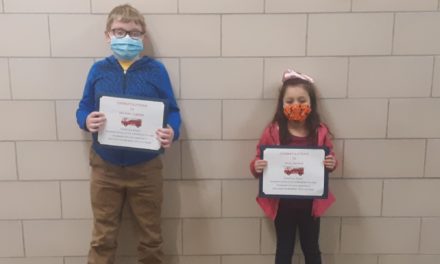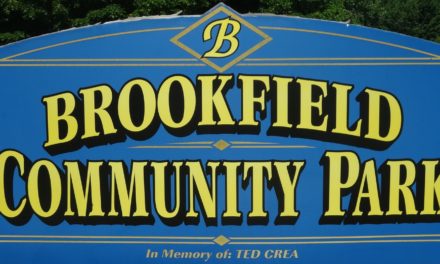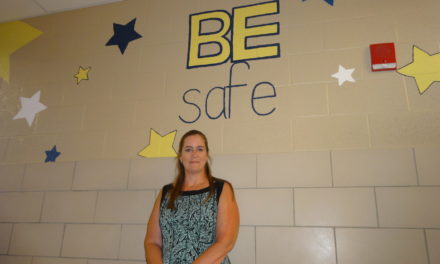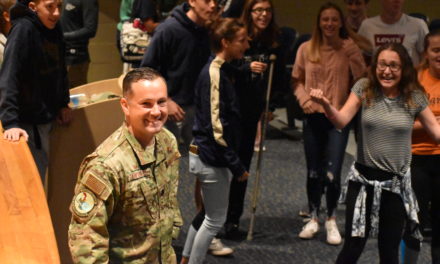Editor’s note: Brookfield Middle School will collect non-perishable food items to help stock the pantry at the open house for students and parents from 5 to 7 p.m. Aug. 20.
Brookfield Elementary School Backpack Program provides supplemental food assistance to students.
But, when some of the students who participated in the program are promoted to Brookfield Middle School, they look around for the Backpack Program or something similar. There hasn’t been anything there. That will change this year.
“That hunger doesn’t stop once you go from fourth to fifth grade,” said middle school principal Toby Gibson. “We finally have the opportunity to address those issues.”
The school is working with three groups that have been instrumental in making the backpack program run: Second Harvest Food Bank, which buys food for food programs; the Brookfield Backpack Charitable Fund, which pays for it; and Brookfield United Methodist Church, which helps stuff backpacks.
At the middle school, officials are creating a food pantry. It will operate differently than the backpack program, but will provide the same basic service: providing supplemental food.
“We’ve cleared out a storage room here in the office complex and we’ll have nonperishable food items there, some personal hygiene products and some clothes,” Gibson said.
The Brookfield Backpack Charitable Fund will provide $1,500 to start the program, said fund spokesman Tracy Plyler.
At the food pantry, students will be able to pick out items, instead of others stuffing backpacks for them, and the items will be geared more toward a family. Whereas the backpack program provides cereal, peanut butter, simple entrees and snacks that are aimed at one person, middle school students will be able to choose, say, macaroni and cheese, spaghetti and sauce, tuna and vegetables, enough for a family meal, Plyler said.
The fund has pretty much let the school choose students who participate, but the backpack program guidelines are fairly strict and there isn’t much deviation allowed, Plyler said.
“There’s less rules involved in a pantry than with a backpack program,” she said. “It’s definitely the way to go as kids get older.”
The church will provide personal hygiene and toiletry items.
Organizers already have ideas for expanding the pantry, but want to see the response before implementing them.
“We’re not quite sure what to expect” in terms of participation, Plyler said.
Officials hope to have the pantry open for the start of school, although there are details to attend to, including an inspection of the pantry room by Second Harvest. The food can be ordered once the room is approved, Plyler said.
The school would like to hold a food drive to stock the pantry, and donations of nonperishable food, toiletries and money can be directed to the middle school office.








